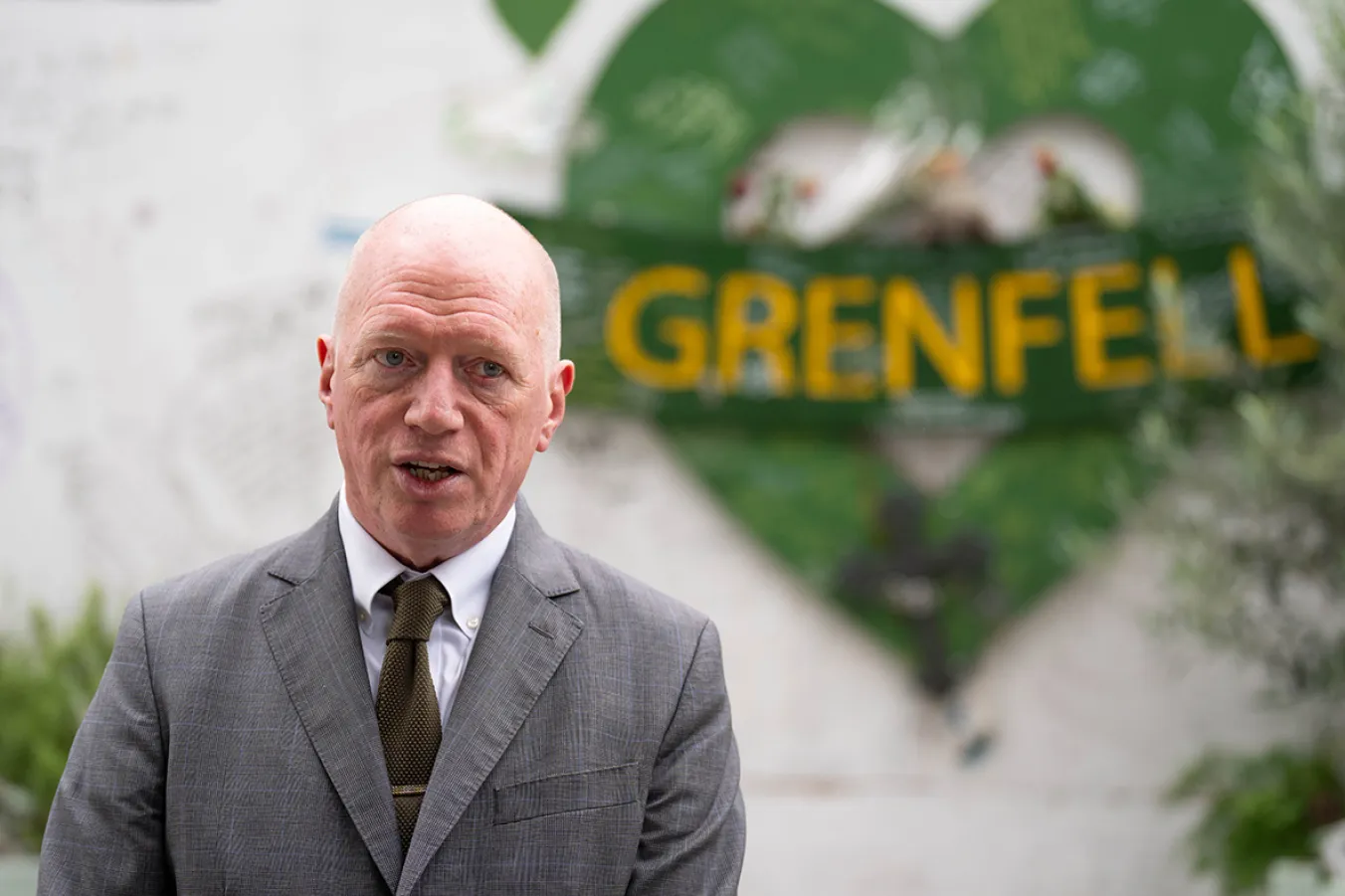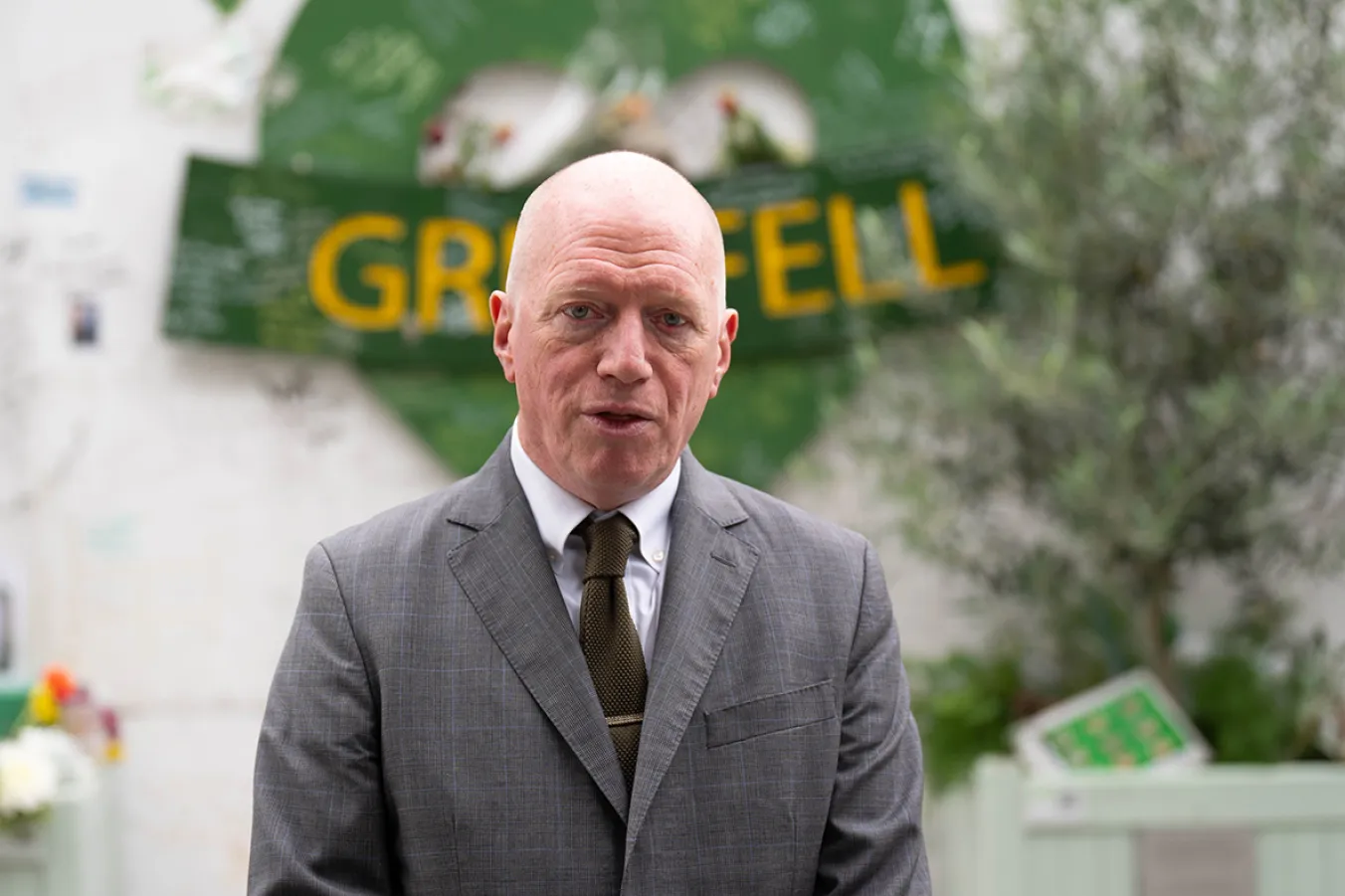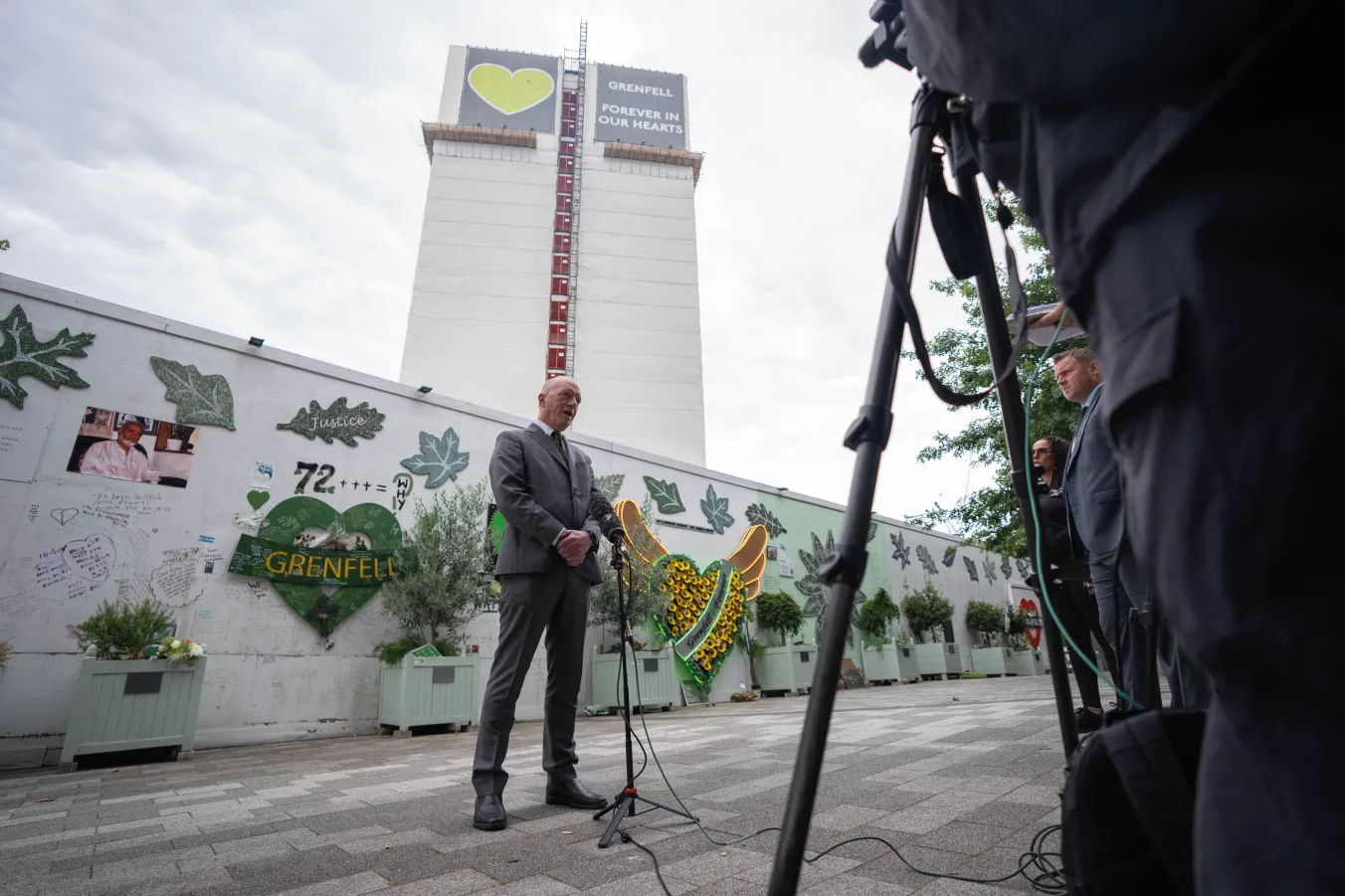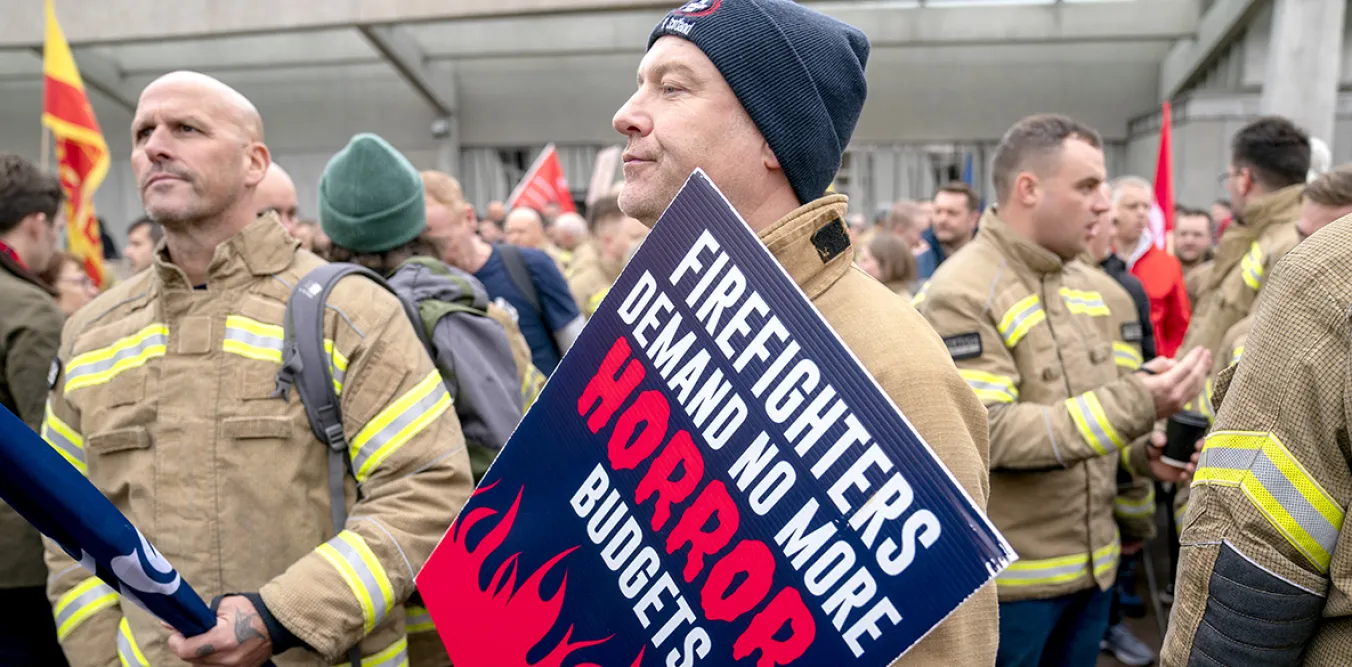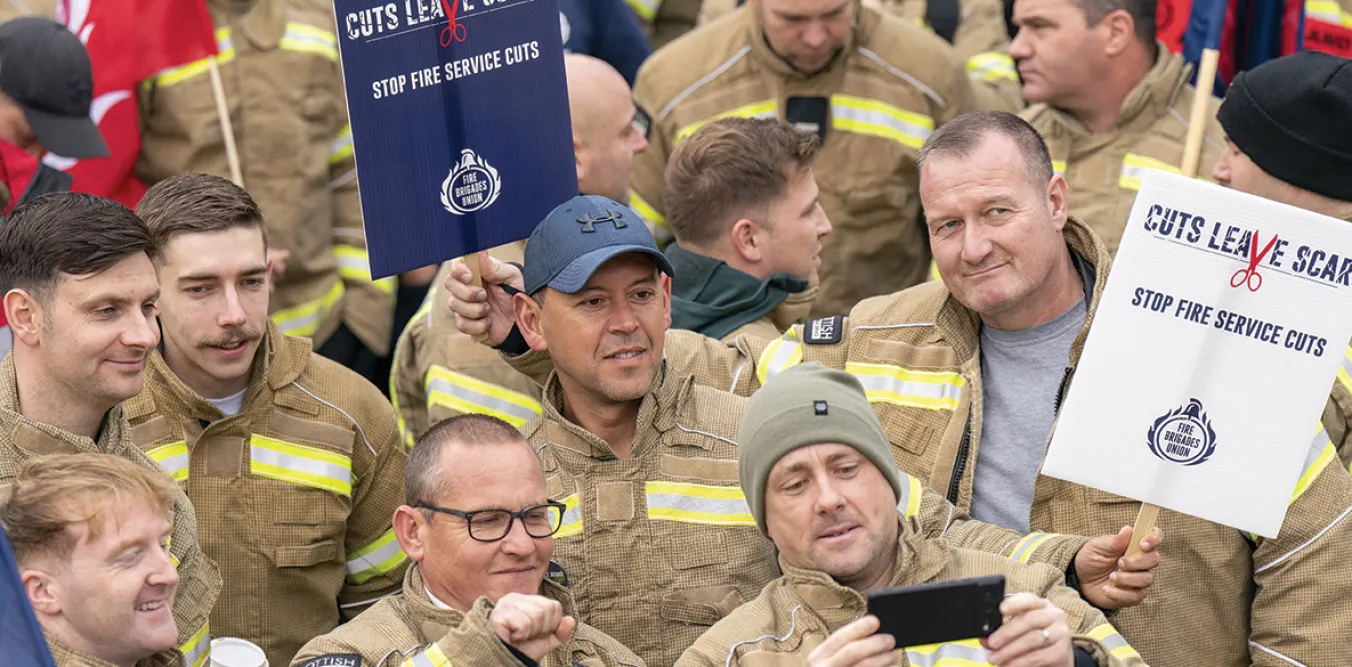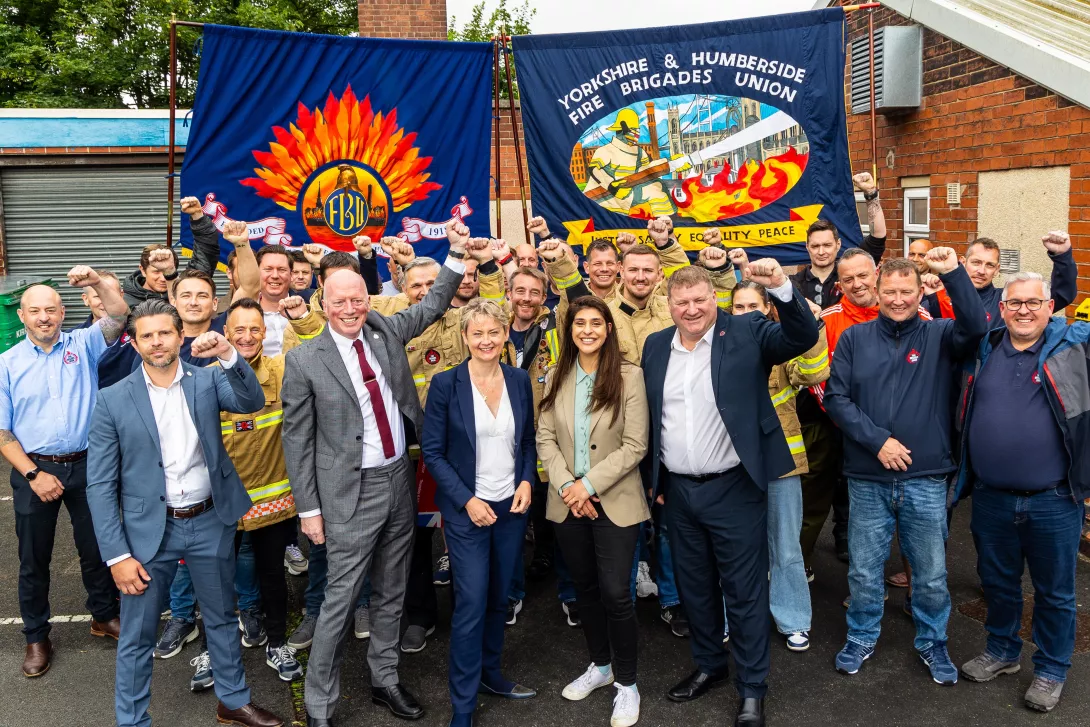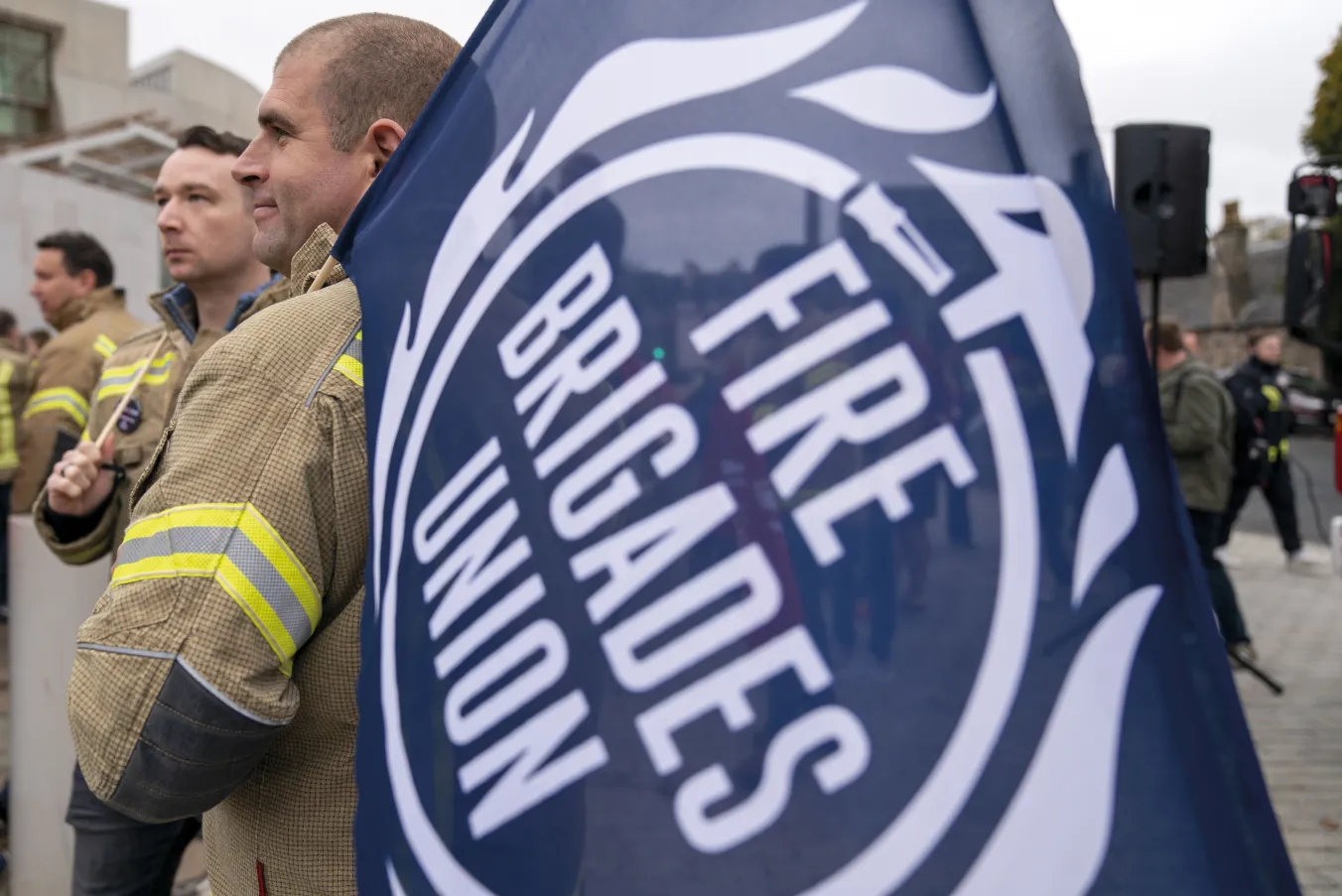
IN 2010, the Trussell Trust handed out 60,000 food parcels. In 2022-23, it handed out just under 3 million. Across the developed world, real wages are on average 8.8 per cent higher than they were in 2008; in Britain, they are 2.7 per cent lower.
Meanwhile, Britain is home to 165 billionaires. Its richest 350 families have a combined wealth of £795 billion, a sum roughly equivalent to the GDP of Turkey or the Netherlands.
The fire and rescue service has lost one in five firefighter jobs since 2010. Eighty-two fire stations and 17 emergency fire control rooms have been shut down. Thirty per cent of central government funding has been cut in cash terms, which amounts to much more in real terms. Pay and pensions have come under relentless attack.
The people responsible for this are a government of millionaires acting in the interests of corporate bosses and billionaires. The Tories have spent 14 years dismantling public services and driving down living standards, while attacking our democratic rights.
Now, we finally have the chance to kick them out of government. The FBU is affiliated to Labour and we call for a Labour vote.
We are under no illusions that the Labour Party is going to do exactly what we want. The FBU reaffiliated to Labour in 2015 to support the party under Jeremy Corbyn. We have been vocal in our criticisms of Keir Starmer: on Gaza, support for striking workers, taxing the rich, and accepting the likes of Natalie Elphicke into the Parliamentary Labour Party.
But with a Labour government in power, workers will have a better opportunity to campaign and fight. We can and must use our leverage to fight for change. To be effective in this, we must unshackle trade unions from some of the most restrictive anti-union laws in Europe.
Working with other unions, the FBU has fought hard to ensure that the Labour manifesto includes the commitment to reverse the most recent anti-union laws. The 2016 Trade Union Act means that unions cannot legally strike without a turnout of 50 per cent or more. Hundreds of thousands of workers were recently prevented from taking strike action over pay, despite overwhelming democratic support for action among those voting.
The Minimum Service Levels Act is an authoritarian attempt to prevent public-sector workers from standing up for their pay and conditions. Sunak took aim at six key sectors: health, education, fire and rescue, border security, transport, and nuclear decommissioning.
It gives employers in these sectors the power to issue “work notices” during a strike period, requiring named workers to cross the picket line, despite a democratic mandate for industrial action.
In England, these regulations amount to an attempt to effectively ban strikes in the fire and rescue service. The Welsh and Scottish government have refused to apply it and it does not apply in Northern Ireland. Seeing it scrapped altogether will be a victory for workers in all sectors, and we must make this a priority.
The scrapping of these laws is part of Labour’s New Deal for Working People, which also includes commitments to crack down on zero-hours contracts, end fire and rehire, and raise the minimum wage. It has the potential to improve the lives of millions of people.
Labour has also made commitments to reintroduce national standards on issues like fire cover and health and safety.
At a meeting on Monday morning with firefighters in Dewsbury, West Yorkshire, shadow home secretary Yvette Cooper went one step further in promising to deliver a new structure to set these standards, which will include the FBU. If implemented, this would go some way to reversing the fragmentation of the fire service which has been underway for 20 years.
These are vital steps in the right direction, and they must be the first steps. There must be no rowing back. The FBU has no illusions about the task ahead of us, having taken on our share of battles against politicians of all stripes over the decades.
After almost half a century, it is time to end the Thatcherite experiment that has wrecked our country. We will not achieve this just by voting in this election.
